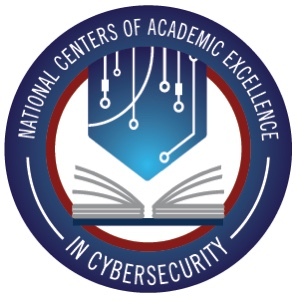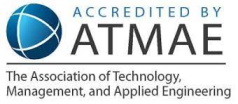The Department of Technology, located in room 211 in the John Mitchell Center on the Gorham campus is part of College of Science, Technology, and Health and provides degree programs in Cybersecurity (CS), Information Technology (IT), and Technology Management (TM) (ATL).
We Utilize the Application of Knowledge for Practical Ends.
We prepare students for careers as leaders in business and industry, information technology, and network security through specialized and professional courses.
Technology is the study of the creation and utilization of adaptive systems including tools, machines, materials, techniques, and technical means, and the relationship of those elements and systems to human beings, society, and the environment. In the department, technological concepts and skills are presented through a variety of approaches including lectures, laboratory activities, field experiences, industrial visits, and cooperative programs.
The curricula of the Department of Technology provides a blend of general education, technical, and professional courses designed to prepare individuals for careers as leaders in business, industry, and technical services. Several degree programs and options leading to a bachelor of science degree are offered by the department. Each program is designed to meet the educational needs of students with a variety of backgrounds and career aspirations.
Degrees in the Department of Technology
The Department offers Bachelor of Science degrees in: Information Technology, Cybersecurity (Bachelors and Masters), Technology Management (2+2 Articulations with ME Community Colleges).
Degree Requirements
All students must meet University general education requirements and additional Departmental requirements either through courses taken at USM, through the transfer of courses from other institutions of higher education, or through portfolio assessment.
Program Outcomes
Cybersecurity Program Outcomes
The B.S. in Cybersecurity degree (BSCS) is relevant to the rapidly changing landscape of information security. The department, including this program, is designated one of the National Centers for Academic Excellence in Cybersecurity with a CAE-CD designation. The techniques, policies, operational procedures, and technologies that secure and defend information systems will be covered. Hands-on learning is an integral part of the B.S. in cybersecurity. This degree is designed to expand the student’s professional knowledge, skills and abilities so that they are more competitive candidates for this highly-specialized workforce. Students who earn this degree are knowledgeable in evaluating, analyzing and posturing a secure digital network. They are practiced in network monitoring and countermeasure implementation. They are skilled in collaborative projects and communications as well as acutely aware of and abide by ethical standards. Students gain experience in defending cybersecurity attacks in a production environment through internships as well as in simulation exercises. The skills and understanding that these students develop afford them the ability to have an immediate impact in the workplace.
Upon completion of the Cybersecurity degree program at the University of Southern Maine the student will be able to:
- Evaluate network protection needs and establish a security posture.
- Analyze networks for vulnerabilities and propose/implement countermeasures.
- Compose effective communications utilizing many modalities and industry terminology.
- Demonstrate high ethical standards.
- Coordinate with team members to achieve a common task.

Technology Management Program Outcomes
The B.S. in Technology Management degree (BSTM) offers four different concentrations. The B.S. in Technology Management program is accredited by the Association of Technology, Management, and Applied Engineering (ATMAE). While each concentration has its own strenghts, all four of the concentrations share the following ten outcomes:
Upon completion of the Technnology Management degree program at the University of Southern Maine the student will be able to:
- Communications – A graduate will understand and effectively communicate verbally, in writing, and graphically.
- Quantitative methods – A graduate will understand, use, and apply principles of mathematics at statistics, algebra, pre-calculus, and applied calculus levels.
- Scientific principles and methods – A graduate will understand, use, and apply scientific methodology and analytic techniques related to their major and concentration.
- Business and economics – A graduate will understand business and economic principles that apply to organizations in today’s global economy.
- Management and supervision – A graduate will understand modern management and supervisory principles and practices, be able to effectively function in teams, and be an effective leader and manager.
- Safety and health – A graduate will understand ethical, legal, and technical aspects of creating and maintaining a healthy and safe environment, including regulatory requirements.
- Professional and personal development and responsibility – Graduates will have a strong educational foundation that prepares them to be a world-minded, intentional, life-long learner and practitioner; including a liberal arts foundation anchored in the humanities, arts, and sciences consistent with the educational mission and purpose of the University, their personal role and responsibilities as an individual, and will perform at an ethical professional level while completing their responsibilities.
- Technological principles and systems – A graduate will understand the technology and operation of technical systems related to their technical / occupational concentration.
- Careers and best practices – A graduate will be able to identify careers and best practices in developing and/or delivering information on technological artifacts and processes and apply them in a context of their interrelationships, responsibilities, and demands as technology professionals.
- Creativity – A graduate will be able to develop and explore methods for approaching a problem or a challenge in an imaginative and innovative way. Innovation is the application of better solutions that meet new requirements, unarticulated needs, or existing market needs. This is accomplished through more effective products, processes, services, technologies, or ideas.


